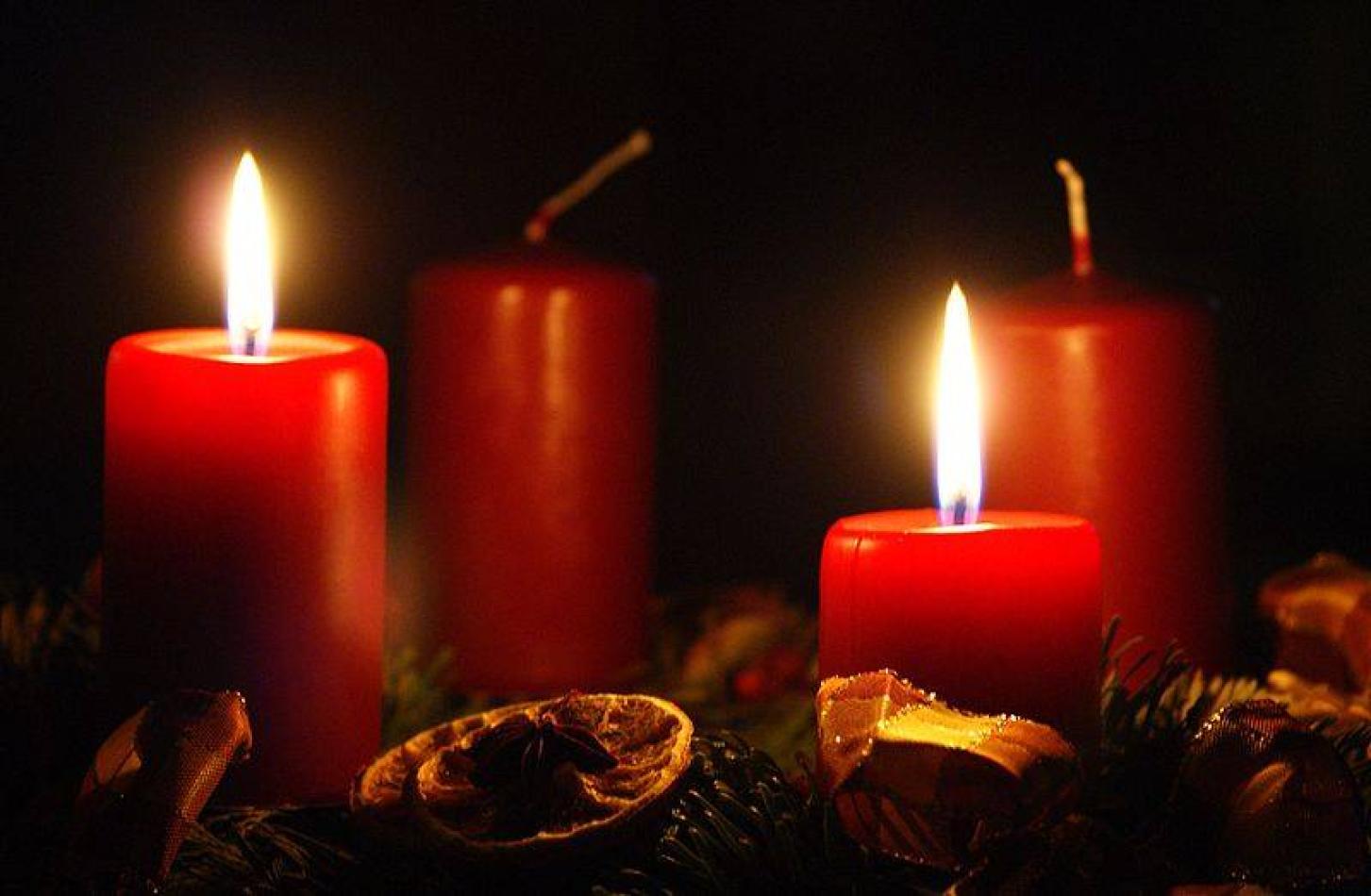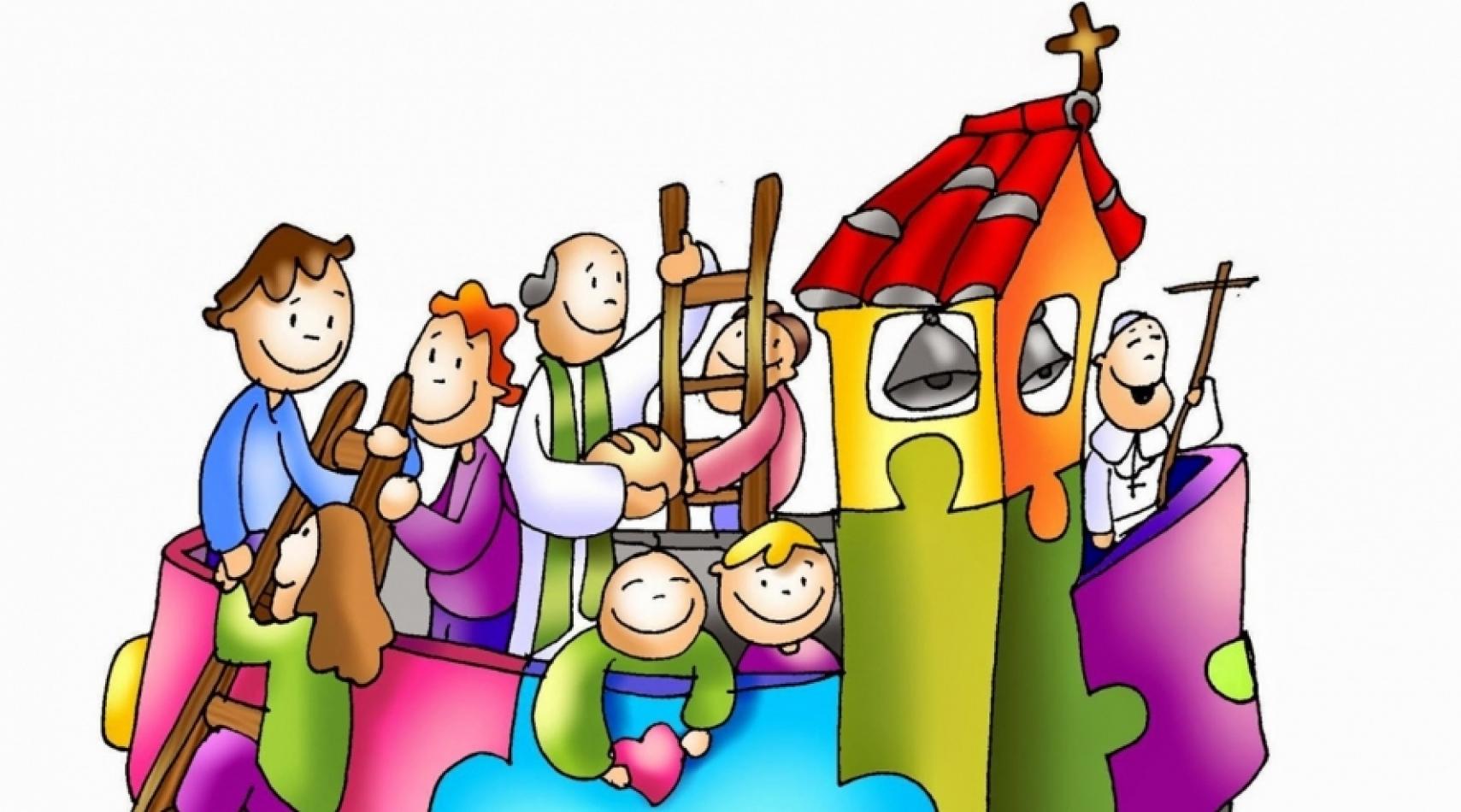Daniel Comboni
Comboni Missionaries
Institutional area
Other links
Newsletter
At the time of Jesus, it was believed that Elijah did not die, but was taken to heaven to reappear one day. In fact, prophet Malachi foretold, “Behold, I am sending my messenger ahead of me to clear the way… I am going to send you the prophet Elijah before the day of Yahweh comes, for it will be a great and terrible day” (Mal 3:1,23). (...)
Gospel Reflection
Matthew 3:1-12
She will flourish like the palm tree and will grow like a Lebanon cedar
Introduction
Israel was a tree that the Lord had germinated and then cultivated. Later the enemy came, armed with the lumberjack’s ax. They had smashed with merciless blows and reduced it to a bare and desolate trunk (Ps 74:5-6). It is our history. We are at the mercy of the forces of evil that enslave us. They take away the light and breath from us. We become dried branches, unable to bear fruit. But woe if we lose hope.
In the future days – the prophets assured – Israel will take root, blossom, and sprout and fill the world with fruit (Is 27:6). I shall be like the dew to Israel – the Lord says – like the lily will he blossom. Like a cedar he will send down his roots; his young shoots will grow and spread. His splendor will be like an olive tree, his fragrance, like a Lebanon cedar.
Nothing is impossible to him that has made even the dry stick of Aaron to flourish (Ex 17:3). According to the promises of the Lord, from the root of Jesse, a vigorous tree has sprouted – Christ – in which all are grafted. From him, the sap will come to maintain its lushness and will make every tree planted in the garden by God produce abundant fruit. There are no desperate situations for those who believe in the Lord.
Gospel: Matthew 3:1-12
At the time of Jesus, it was believed that Elijah did not die, but was taken to heaven to reappear one day. In fact, prophet Malachi foretold, “Behold, I am sending my messenger ahead of me to clear the way… I am going to send you the prophet Elijah before the day of Yahweh comes, for it will be a great and terrible day” (Mal 3:1,23).
After Easter, the early Christians realized that “the day of the Lord” was the one in which Jesus brought salvation. It even included who Elijah was, as spoken by the prophet. It was John the Baptist, instructed by God to prepare the people for the coming of the Messiah. “What was there to see? A man dressed in fine clothes? But people who wear fine clothes are found in palaces. What did you go out to see? A prophet? Yes, I tell you, and more than a prophet. For John is the one foretold in Scripture in these words: I am sending my messenger ahead of you to prepare your way” (Lk 7:25-27). “All the prophets and the Law prophesied until John. And if you believe me, he is that Elijah whose coming was predicted” (Mt 11:13-14).
Who was John? An enigmatic person! Josephus Flavius – the famous historian of the time – presented him thus: “He was a good man who urged the Jews to live a righteous life, treating each other with reciprocal justice and subordinating themselves with devotion to God and having themselves baptized. In truth, John was of the idea that not even this bath was acceptable as forgiveness for sins. He was convinced that it would be only a purification of the body if the soul had not been previously purified through right conduct” (1 Antiquities of the Jews, 8.5.2 & 116-119).
In today’s Gospel Matthew describes him as an austere man (v. 4). His food was simple like that of the inhabitants of the desert. His dress was rough, a leather belt around his waist that distinguished Elijah (2 Kg 1:8), and a fur cloak – a uniform of the prophets (Zec 13:4).
The whole person of John the Baptist was a condemnation and denunciation of the opulent society – then as now. It was aimed at the ephemeral, the frivolous, the false values of luxury and ostentation.
His message is summarized by the evangelist in a simple phrase, “Repent, because the kingdom of heaven is near” (v. 2).
The hope in a better future was one of the central themes of the message of the prophets. Unlike the other people who put their golden age in the past, Israel placed the reign of David in the future. It was waiting for a world where the Lord would have exalted harmony and made peace abound; a world where interpersonal relationships would be marked by love, reconciliation with nature, with people, with God.
The apocalyptic preachers had described the history of humankind as a succession of kingdoms of beasts. “Beasts emerged from the sea; they were the great empires of Babylon, Media, Persia and Greece” (Dn 7). Those were difficult times, but there was no need to lose heart: the ancient world had come to an end and the new world was about to burst.
The present pains should not be interpreted as signs of death, but as the suffering of a difficult childbirth: a prelude to the birth of the new era.
Since these are the expectations of the people, it is easy to see how the preaching of John would arouse great enthusiasm. Everyone was running to be baptized, to be introduced first into the kingdom of God.
Baptism by water was not enough. Jordan was not a pool from which one miraculously came out cleansed of sin. To be willing to enter into the kingdom, it was necessary to convert oneself, that is, to reverse the path, change course, to completely modify the way of thinking and acting. It was not enough to correct some moral behavior. It was necessary to put into action a new exodus.
They came to him from Jerusalem … Here are the people of Israel, established in the promised land, now abandoning their own condition of presumed freedom and returning to Jordan. They considered themselves free, but in reality, they continued to be slaves: of their own religious convictions, their obstinacy, the false image of God that they made.
They confessed their sins … They became aware of being still in exile, of being deprived of freedom.
Every year on the second Sunday of Advent, the liturgy offers Christians the preaching of John the Baptist. He prepared the people of Israel for the coming of the Messiah. So, also today, he is able to teach us to welcome the Lord who is coming.
Today, as then, the most difficult step to accomplish is to understand that it is a must to get out of the land where we are settled, leave the false religious and theological security that we constructed and welcome the newness of God’s word.
Not everyone has responded with solicitude to the invitation of the Baptist. Not all were willing to work a radical change of heart. The Pharisees and Sadducees … while intrigued by the preaching of John, found it hard to get involved. They did not trust him but preferred to keep their certainties (vv. 7-10). They thought they were already right with God for the fact of being children of Abraham. This false security will be reported later by a famous rabbinic saying: “As the screw rests on a dry wood, even so, do the Israelites rely on the merits of their fathers.”
The reproach with which the Baptist welcomes Pharisees and Sadducees is severe: “Brood of vipers!” He compares them to snakes that inject their poison of death in those who inadvertently come close to them. Then he moves on to the invective, the announcement of disasters that are about to hit them. They run the risk of being cut off like a tree that does not bear fruit and of being burnt like chaff. God’s wrath is incumbent on them.
We are faced with dramatic images that seem to refute the dream of Isaiah in the first reading.
The tone is threatening, and it is not surprising on the lips of John the Baptist. The preachers of that time expressed themselves that way. This is the language that often appears in the Bible. The precursor uses it to warn those who refuse the invitation to conversion; one is deprived of a loving encounter with Christ who comes to introduce him to his joy and his peace.
In the context of the whole gospel, the words of the precursor take on a meaning that goes beyond the immediate. It happened also for Caiaphas to say, without realizing it, a prophecy (Jn 11:49-51).
When he spoke of God’s wrath, John had no clear idea of how it would manifest.
The wrath of God is an image that recurs often in the Old Testament. It is not intended as an explosion of hatred on the victim. It is an expression of God’s love: he rails against evil, not against the person who does it. He does not want to hit the person, but to free each one from sin.
The ax, which cuts the trees at the root, has the same function given by Jesus to the scissors pruning the vine and freeing it from useless branches that deprive it of precious sap and suffocate it (Jn 15:2). The trees uprooted and thrown into the fire are not the people that God always loves as children, but the roots of evil that are present in every person and in every structure and need to be cut to pieces so that the healthy ones can sprout more buds (Mt 3:10).
The cuts are always painful, but those done by God are providential. They create the conditions for new branches to sprout and produce fruits.
The fan, finally, with which the Lord realizes his judgment, is a living image. It describes the way in which the work of every person is screened by God.
In human courts, judges take into account only the errors and pronounce judgment on the basis of the harm done. They take little account of good works. In the judgment of God, the exact opposite happens: He, with the winnowing fan of his word, puts every person under the discerning breath of his Spirit that blows away the chaff and leaves on the threshing floor only the precious grains: the works of love, few or many, that each one had performed.
by Fr. Fernando Armellini
Fernando Armellini is an Italian missionary and biblical scholar. With his permission we have begun translating his Sunday reflections on the three readings from the original Italian into English.
https://sundaycommentaries.wordpress.com




